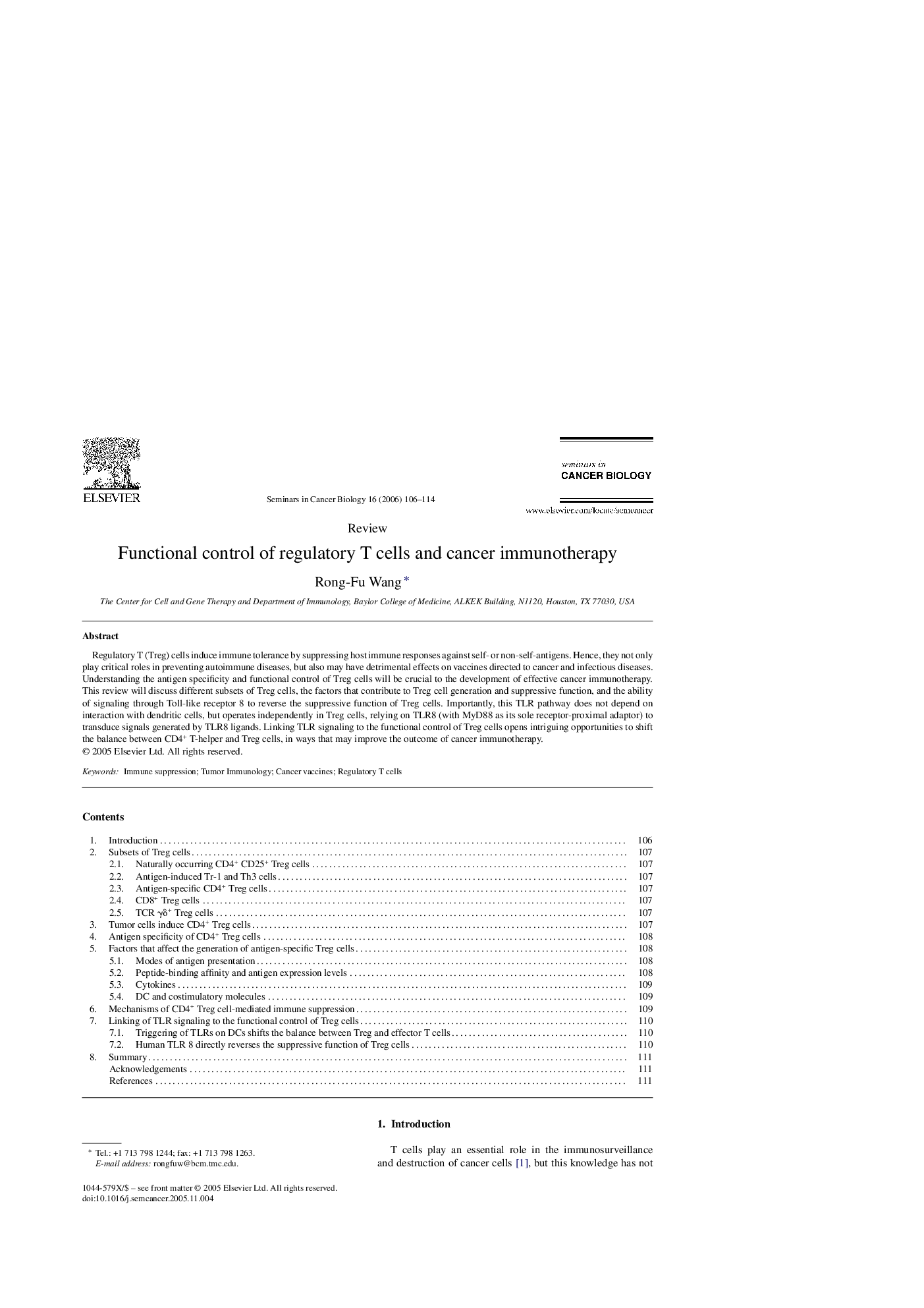| Article ID | Journal | Published Year | Pages | File Type |
|---|---|---|---|---|
| 2024127 | Seminars in Cancer Biology | 2006 | 9 Pages |
Regulatory T (Treg) cells induce immune tolerance by suppressing host immune responses against self- or non-self-antigens. Hence, they not only play critical roles in preventing autoimmune diseases, but also may have detrimental effects on vaccines directed to cancer and infectious diseases. Understanding the antigen specificity and functional control of Treg cells will be crucial to the development of effective cancer immunotherapy. This review will discuss different subsets of Treg cells, the factors that contribute to Treg cell generation and suppressive function, and the ability of signaling through Toll-like receptor 8 to reverse the suppressive function of Treg cells. Importantly, this TLR pathway does not depend on interaction with dendritic cells, but operates independently in Treg cells, relying on TLR8 (with MyD88 as its sole receptor-proximal adaptor) to transduce signals generated by TLR8 ligands. Linking TLR signaling to the functional control of Treg cells opens intriguing opportunities to shift the balance between CD4+ T-helper and Treg cells, in ways that may improve the outcome of cancer immunotherapy.
